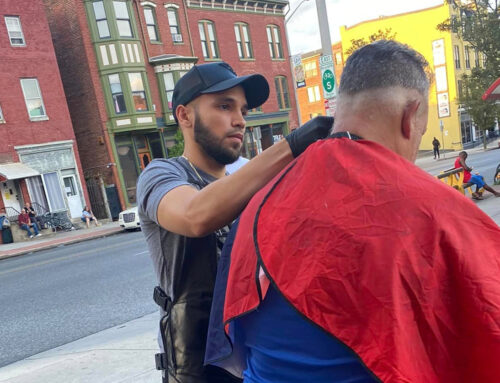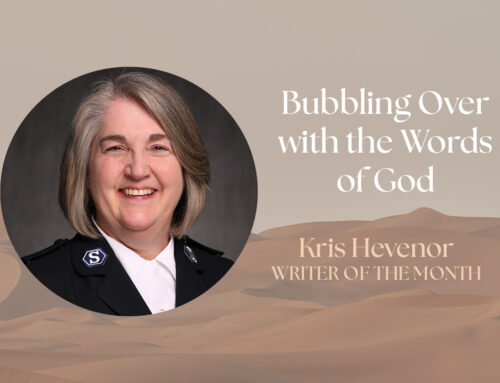
Instrumental Change
an interview with Danny Gokey
by Warren L. Maye
Instrumental is a word Christian recording artist Danny Gokey loves to use when describing the moment when God lifted his soul from the depths of depression after the loss of his first wife to congenital heart disease. Now remarried and the father of four children, Gokey’s music ministry offers hope to people who are going through life’s disappointments.
Warren Maye: You’ve performed on TV’s “American Idol” while the world watched you sing your heart out. What does the day after such an amazing competition feel like?
Danny Gokey: So, I get to the top three. I’d never been in the bottom three. But now, it’s the top three, and finally, I get voted off. I sing my exit song, “You Are So Beautiful.” A few tears roll from my eyes. Then, right away, I say “goodbye” to the judges, and then they sit me down in a room with a psychologist. We’re looking at each other, but not saying a thing.
Then he asks, “How are you?” And I’m like, “What is this?” He says, “Well, the show is a lot of pressure so, we just want to make sure that mentally you’re in a good space because that was a whirlwind that you were just on.” I was like, “I think I’m in a good space.” But then the tears come out and I say, “You know what? Just a few months earlier, I lost my wife. Now, I’ve made it to the top three of ‘American Idol.’ This is a game changer.”
After that, I get whisked away in a car with tinted windows to the hotel, which is a really nice hotel. But I’m told, “you have 15 minutes to grab all your stuff and get downstairs. Your ride will be here.” Soon, I’m in a 15–passenger old church van and being taken to a hotel on another side of town I don’t want to be on. I went from the lap of luxury to being basically on my own.

USA: DANNY GOKEY at FishFest 2021 at Five Point Amphitheater in Irvine, California (Credit Image: © Charlie Steffens/ZUMA Press Wire)
WM: Wow. It’s good to know that the Lord Jesus is in your music. How did you come to know Him?
DG: Well, when my grandfather was 40 years old, he was diagnosed with a condition and left to die. He had five children. My grandma said he was a man of the world, but he got radically saved when he started reading the Gideon Bible at the hospital. He later got called to the ministry, and started a small church, and that’s what brought salvation to our family.
So, my grandma got saved, my dad got saved, siblings got saved—so many people. It’s from that moment when my grandpa was left to die that changed his life. It was instrumental. I grew up in his church and I started learning about God at a young age and that made a big difference.
WM: You learned music while at church?
DG: For sure I did. I started singing. I didn’t always set out to be a professional singer. I just sung because at the beginning that’s what we were taught to do. You sing!
WM: You’ve gone through some tough times, with the loss of your first wife and thoughts of ending your own life. How did the Lord intervene?
DG: I remember when I walked through that season. I don’t know if I would have ended it, but I thought, maybe it’s better to just check out. But I knew that was wrong. So, I struggled. I knew that wasn’t the answer, but I knew living in pain wasn’t the answer either. The wound kept getting worse.
Then He spoke to me. It was in the verse, “Be still and know that I’m God,” (Psalm 46:10).
I’m like, OK, I know God is speaking to me ‘cause I can’t deny this verse— it’s everywhere. So, I finally sat down to read it. I remember sitting at the edge of my bed, thinking, alright, I’m gonna be still and know He’s God. But I also remember thinking, I still feel pain.
I needed to stop fighting with God, stop striving with God and just surrender. When I saw that, I knew God was saying, “it’s time to let it go.”
You know, it’s like Job. God allowed him to go through the pain. When God spoke to him, He didn’t answer questions, He gave Job instructions. It sounds kind of mean, but when I pictured myself back at the graveside where I said “goodbye,” I saw myself hanging out of a casket with one hand.
I held a hammer in my other hand. I pictured myself hitting the opposite hand with the hammer with intensity and saying, “I refuse to allow this to poison me and bury me in bitterness!” So, that was instrumental. I thought, I am not going to grasp this thing that’s causing so much pain. That’s when the bitterness and anger began to leave.
WM: You say that “life starts with how you think, feel, and act.” What drew you to that conclusion?
DG: Thoughts can create feelings, those feelings create actions, and actions create destiny. If you think that you’re not going to make it, then you’re going to feel doubt and ask, “Am I OK? What’s going to happen?” Fear steps in, and when it does, there tends to be actions of self–preservation and we barricade and create walls with our rude behavior.
But if we think that God works everything together for good, then in that moment, we think, I can have joy. I’m going to have peace. I’m not going to put pressure on people around me to fill the void.
If we lack in this area, we’ll put pressure on our relationships. That leads to broken relationships. It’s a hard pill to swallow because we don’t realize that our thoughts are creating our feelings.
WM: What role does music play in your spiritual life?
DG: Music is worship. I was having a tough day and I turned on Alexa Worship. Then “Good, Good Father” came on. “You’re a good father and I’m loved by You.” For some reason, hearing those words was exactly what I needed in that moment. They allowed me to have a different thought than the one I was having and feeling. I took my mind and eyes off myself and put them somewhere else—on the Father. That’s what I love about music.
When I’m in the car with my kids, I turn on a Disney or Veggie Tales song, and it changes the mood in the car. Music can change the atmosphere. I was in the urgent care last night with my son. While sitting there, I put on a song from the Disney movie “Encanto,” that he loves. So, we’re just hanging out, listening to music, and having fun. He’s my 2–year–old.

WM: In your song, “Stand In Faith” there’s a line that talks about escaping disappointment. What are your thoughts about that?
DG: Currently, people will try to avoid disappointment. Instead of changing themselves, they expect everyone around them to change. I see a lot of people trying to do this on social media. This is where “Cancel Culture” comes in. But disappointment is going to come. I’m reading a book right now called The 7 Habits of Highly Effective People, and the thing I love about it most is that it says, “You are your biggest obstacle!”
I love this point, because in society, we’re not talking anymore. We’re saying, “if you don’t like it, go fight back and get your rights,” whatever that means. But you’re only one person and there’s 7 billion people in the world. Imagine trying to get every person to do what you want so you’re never disappointed? That’s too big of a burden to bear.
Change you, and watch everything around you change. We can’t control circumstances. So, what’s the answer? Control how you react. So, there’s two different ways; there’s a disposition of reacting or a disposition of responding. Everyone has a response–ability; an ability to respond. Responding to disappointment is the key to happiness.
Today, I am focusing on my family, I create space, and give them what they need. I’m focusing on what my call is in life. I have a lot of ability to chase this down or chase that down. But I know that God has a specific plan for me, and I want that plan.
WM: We’ll all be watching, because the Lord has put you in a great space.
Danny Gokey’s song “Better Than I Found It,” re-ignited his dream to make a difference by helping others. “I see my music as a movement, mixing hope and entertainment,” he says. For more information on how to support this cause, go to: betterthanifoundit.org.
Read more from the latest issue of SAconnects.




